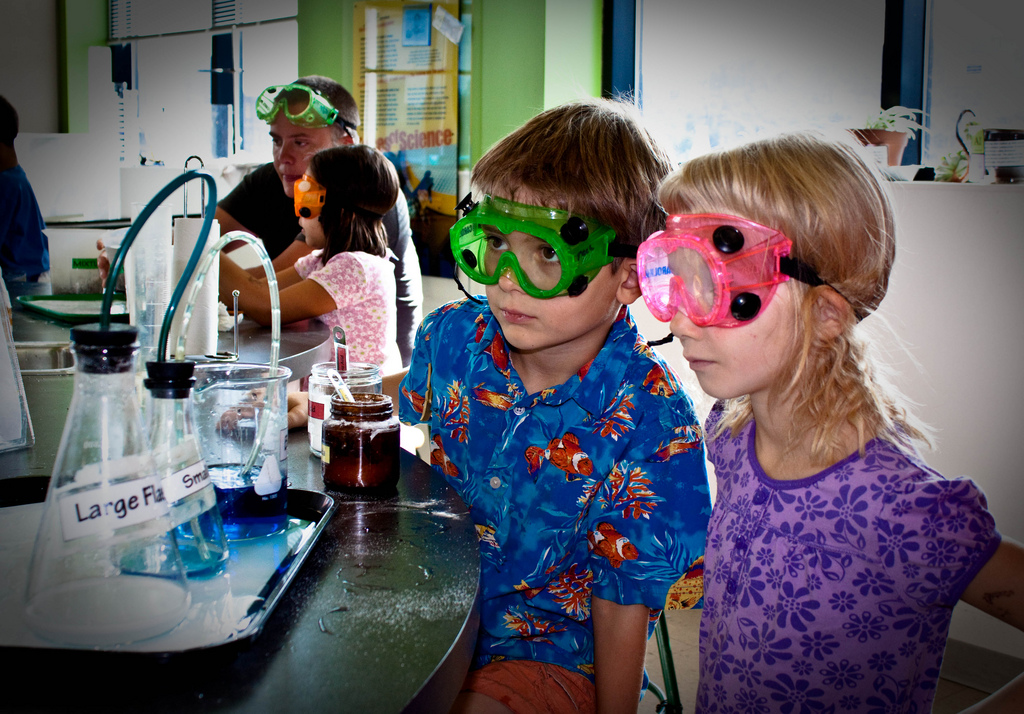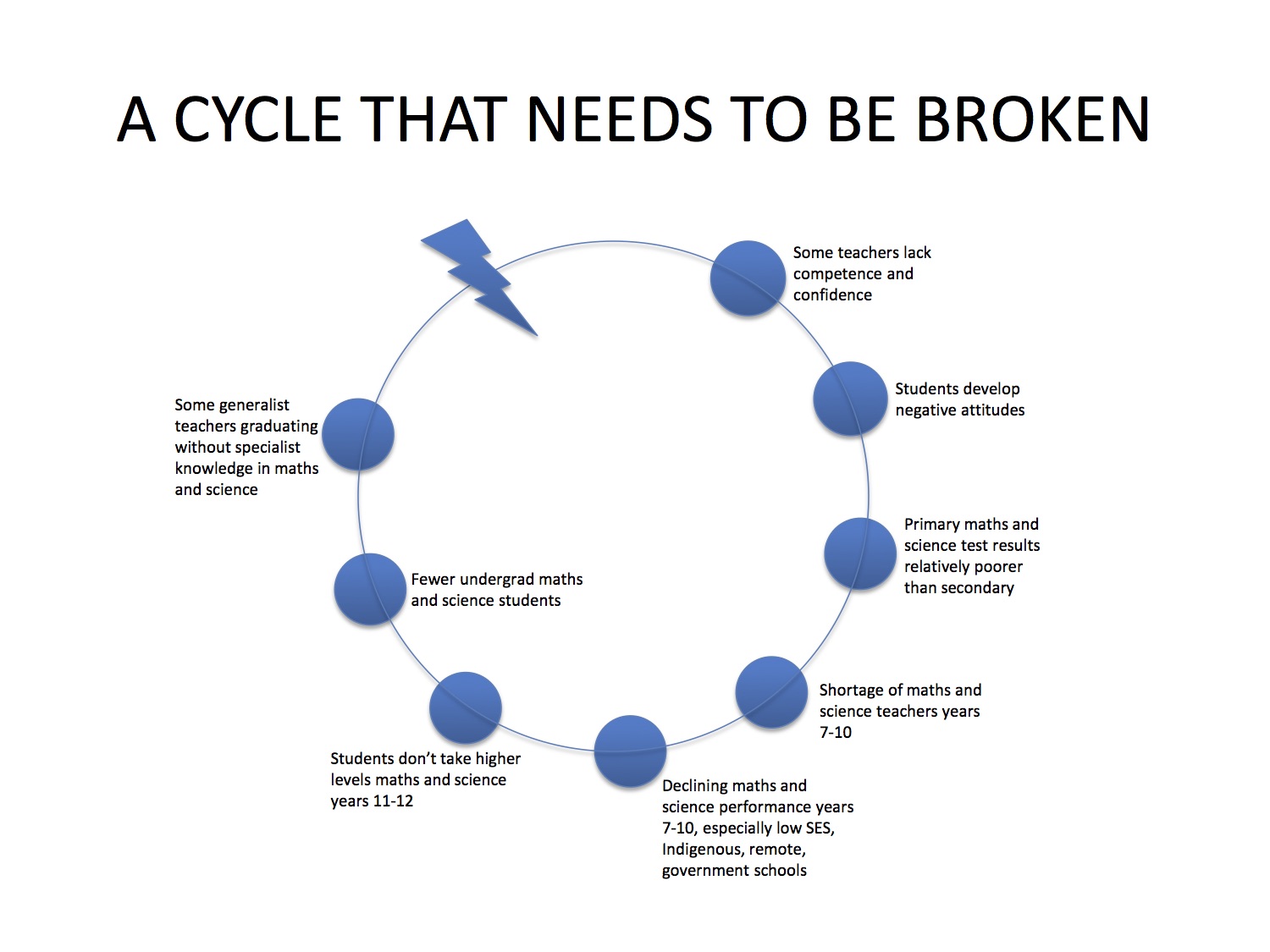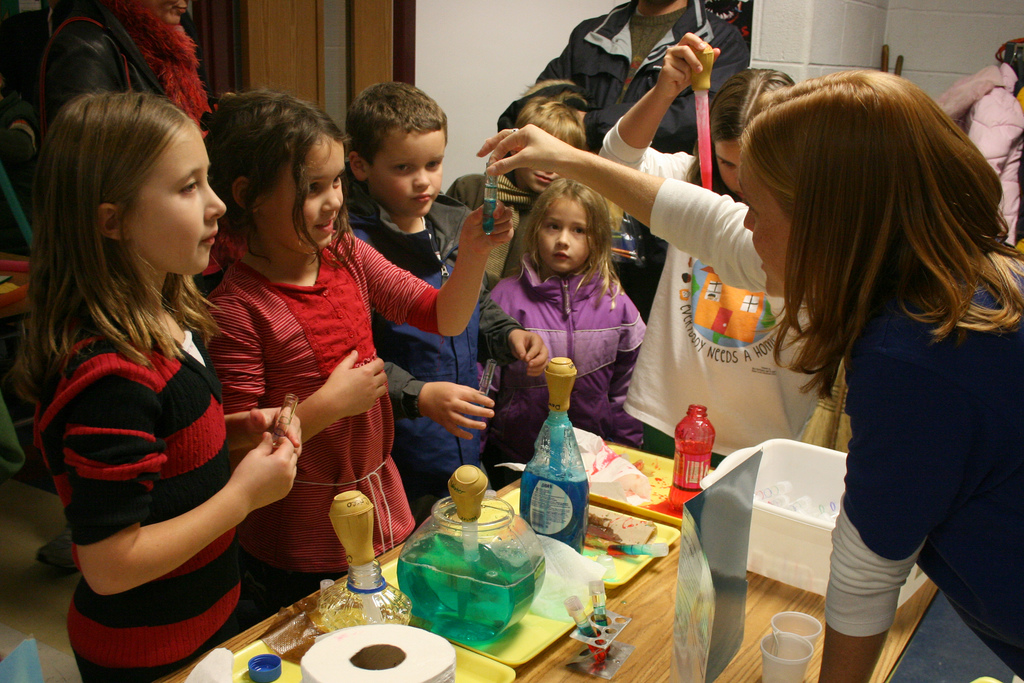Boosting science and maths study starts in primary school

The numbers of students studying maths and science at senior secondary and tertiary levels are in terminal decline, but specialist primary teachers may offer a vital breakthrough.
Published 13 November 2015
Mathematics and science, once the bread and butter of schooling, are in decline. But with more than a third of secondary maths and a quarter of science teachers untrained in their field, how can we expect teachers to spark enthusiasm among students?

Research shows that primary students’ attitudes towards maths and science are a great predictor of their later achievement in these subjects. If a child is interested, performs well and consequently, finds enjoyment in maths and science in primary school, they are more likely to not just continue studying these subjects, but to also achieve high results in secondary school.
However, as some primary teachers lack a Year 12 maths or science qualification, they also lack the confidence and competence required to instil passion for these subjects in their students.
A vicious cycle
Maths and science teachers’ lack of training often impacts the quality of classroom lessons, resulting in ‘cookbook’ activities that look hands-on but are actually overly procedural, resulting in students disengaging early in their schooling journey.
In fact, these so-called ‘teacher proof’ resources can actually deter teachers because of their perceived lack of self-efficacy in these subjects, resulting in their average weekly teaching time spent on maths and science dwindling from 17 per cent to just 5.7 per cent. Without fundamental early learning, students often aren’t excited about maths or science and opt out when they reach VCE.
The number of senior school students enrolling in science subjects is in long-term decline. Likewise, maths participation declined from 76.6 per cent to 72 per cent between 2002 and 2010, and there is a continuing shift from intermediate and advanced levels of mathematics to the elementary level.
This lack of interest trickles onto tertiary studies where we see very low enrolment in maths and science subjects and, as a result, early childhood, primary and secondary school teachers who graduate without subject expertise. These graduates end up in our schools, where 40 per cent of high school maths teachers have not studied maths to at least second-year level at university. Without a robust and inspiring maths and science education system we see low rates of engagement, poor academic results and reluctance to continue these subjects in later years. It is a vicious cycle needs that to be broken, but how?

The solution
Professor Stephen Dinham, the University of Melbourne’s Chair of Teacher Education believes specialist maths and science teachers in primary schools may be part of the answer.
“Knowing some students will not encounter a specialist maths or science teacher until the upper years of secondary school, if at all, is it really that surprising so many are failing to take the higher levels of mathematics and science in secondary education?” he says.

“We need to commence maths and science education in the primary years, and even prior to that through quality pre-school education,” he says.
These days a primary school teacher must be everything to everyone.
The curriculum is overloaded with both academic and social aspects, making the role of a generalist primary teacher increasingly untenable.
Introducing specialist maths and science teachers would take the pressure off generalist teachers, enabling them to focus on other areas of the curriculum, explains Professor Dinham.
“Generalist teachers could also be supported through team-teaching with these subject specialists. This would provide teachers and students with the benefit of working with someone who is both a content and teaching subject matter expert, and hopefully inspire them with greater enthusiasm.” It’s about changing approaches to maths and science education, and engaging candidates who are experts in their field, Professor Dinham says.
“We need teachers who can bring real science and maths into the classroom. We also need to take students out of the classroom and into sites where mathematics and science are being discovered and utilised,” he says.

The introduction of specialist maths and science teachers was recommended in the 2014 Teacher Education Ministerial Advisory Group (TEMAG) report, and is something the Melbourne Graduate School of Education has offered as part of its Master of Teaching (Primary) course for the past two years. Eligible candidates complete at least a quarter of their two-year degree in maths and science, working in close collaboration with academics in education and the maths and science faculties.
“By embedding deeper understanding, additional knowledge and pedagogical approaches, along with closer alignment with scientists and mathematicians in our course, students graduate as fully qualified generalist primary teachers with an extra accreditation in maths or science teaching, giving schools flexibility in how they use them,” Professor Dinham says.
Professor Dinham is also Project Director for the Reconceptualising Maths and Science Teacher Education Programs (ReMSTEP), a three-year collaborative project led by the University of Melbourne in association with Deakin, La Trobe and Monash universities.
Funded by the Office for Learning and Teaching, ReMSTEP is developing new, engaging teacher education practices that incorporate contemporary mathematics and science. “To significantly increase maths and science engagement and achievement, we need to break a major cycle,” Professor Dinham says. “This important project will leave a legacy of new courses, resources and productive alliances, but most importantly, a cohort of better equipped, more confident and competent primary and secondary teachers of maths and sciences.”
Banner image: Plasma ball by TheGiantVermin, via Flickr
